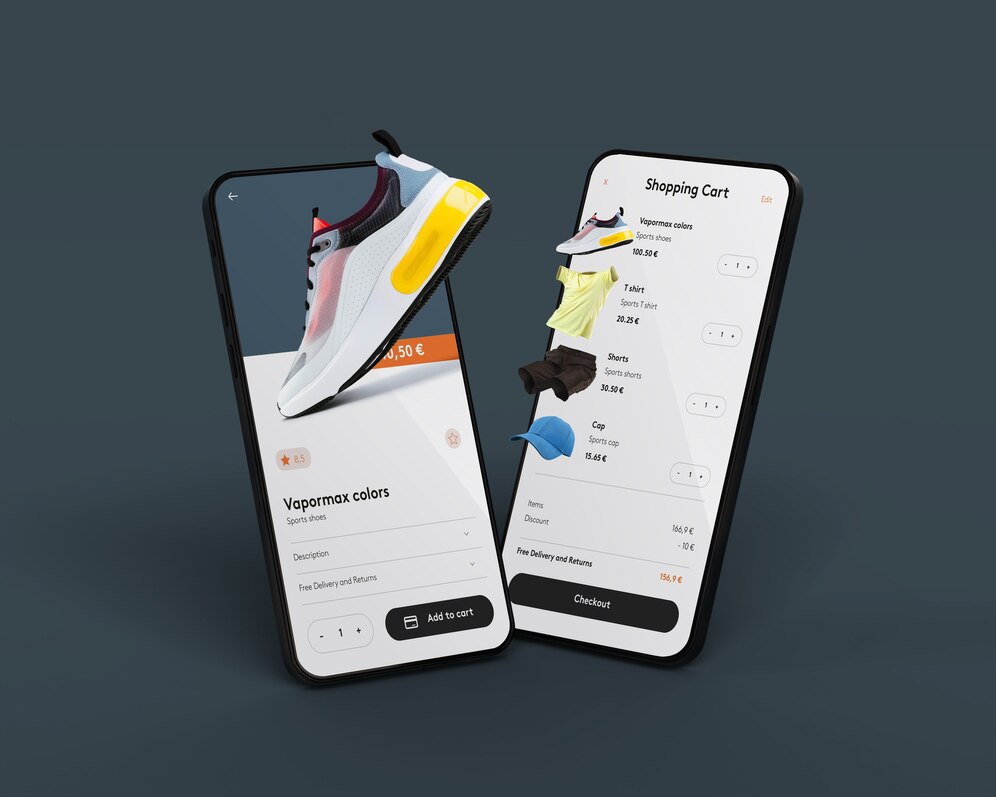The Importance of Scalability in Mobile App Design
In the ever-evolving world of mobile app development, scalability has become a fundamental aspect of designing mobile applications. As more people turn to their smartphones and tablets for day-to-day tasks, the demand for mobile apps that can handle increasing user loads, more data, and a variety of functionalities grows. For mobile app developers, ensuring that an app is scalable is not just a technical consideration—it is an essential strategy to future-proof the app and guarantee a smooth user experience.
Understanding Scalability in mobile app Design

Scalability refers to the ability of a mobile app to accommodate growing demands without compromising performance. A scalable app can seamlessly handle a larger number of users, a greater volume of data, and additional features without experiencing slowdowns, crashes, or other performance-related issues. For mobile app developers, designing with scalability in mind means creating an app architecture that can evolve with the app's needs over time. This allows businesses to scale up their app’s capabilities as their user base expands or as new features are introduced.
The importance of scalability goes beyond the technical perspective—it is directly tied to the user experience and the long-term success of the app. A non-scalable app may perform well in its early stages but can encounter significant performance bottlenecks as its user base grows. Such issues often lead to frustrated users, negative reviews, and, ultimately, decreased app retention.
Why Scalability Matters for Mobile App Developers

Mobile app developers are tasked with ensuring that apps are robust enough to manage fluctuating demands, whether it’s handling a sudden spike in traffic or maintaining optimal performance during periods of rapid growth. Scalability in mobile app design becomes even more crucial for businesses that anticipate growth or plan to scale quickly. Without a scalable foundation, an app might fail to deliver a consistent experience as the user base or the app’s features expand.
One key area where scalability plays a vital role is in infrastructure. mobile apps need to be able to scale horizontally (by adding more servers) or vertically (by enhancing server capabilities) to support increased demand. In addition to the app’s infrastructure, scalability also impacts the app’s backend systems, such as databases, APIs, and cloud services. For mobile app developers, it is important to build an app that can adjust dynamically to these changing demands, ensuring that performance remains stable even as the app grows.
The Role of Scalability in User Experience

The user experience (UX) is the cornerstone of any successful mobile app. Users expect apps to load quickly, perform consistently, and respond instantly to their inputs. Scalability directly influences these factors. An app that is not scalable may struggle to maintain fast load times as more users access it simultaneously or as more data is processed. This can result in lag, crashes, and delays, all of which lead to a poor user experience.
In contrast, a scalable mobile app ensures that users experience minimal disruptions, even when the app is under heavy load. By optimizing the app’s backend infrastructure, database performance, and API responses, mobile app developers can create a seamless UX, regardless of how much the app is used or how many new features are added over time.
Scalability and Future-Proofing the App

One of the most significant advantages of designing a scalable mobile app is future-proofing. The mobile app market is highly competitive, with new technologies, features, and platforms emerging regularly. For a mobile app to remain relevant, it must be able to integrate these advancements without major overhauls.
Scalable design allows mobile app developers to easily update and upgrade the app, adding new functionalities, integrating with emerging technologies, or adapting to new operating system versions. This kind of flexibility ensures that the app stays competitive and continues to meet the evolving needs of users.
Cost Efficiency and Maintenance

Scalability also contributes to cost efficiency and ease of maintenance. Apps that are not designed with scalability in mind may require frequent updates or patches to address performance issues as the user base grows. These updates can be resource-intensive and may lead to more downtime or additional costs for infrastructure upgrades.
On the other hand, scalable apps are built to handle growth from the outset, which means that developers can focus on enhancing the app’s functionality rather than constantly addressing performance-related issues. This not only saves time and money but also allows mobile app developers to allocate resources to more impactful tasks, such as adding new features or improving the user interface.
Choosing the Right Technology Stack for Scalability

To achieve scalability, mobile app developers must choose the right technology stack. The technology stack forms the backbone of the app’s performance, and selecting technologies that can scale efficiently is essential. For example, cloud-based platforms like Amazon Web Services (AWS), Google Cloud, or Microsoft Azure provide developers with the flexibility and tools necessary to scale apps seamlessly. Additionally, adopting microservices architecture allows for greater scalability by breaking down the app into smaller, independent services that can be scaled individually.
Choosing scalable database systems is also crucial. Relational databases such as PostgreSQL or MySQL can handle moderate workloads, but for larger-scale apps, developers may need to opt for NoSQL databases like MongoDB or Cassandra, which are designed for handling high volumes of data across distributed systems.
Conclusion

In today’s competitive app development landscape, scalability is not just a technical concern—it’s a business necessity. For mobile app developers, designing apps with scalability in mind ensures that the app can handle growth, adapt to changing user needs, and provide a seamless experience. Scalability impacts the app’s performance, user experience, long-term viability, and cost-efficiency. By building scalable apps, developers can future-proof their creations and deliver a smooth, uninterrupted experience to users, regardless of how many users or how much data the app must handle. As businesses grow and the mobile app landscape evolves, scalability will remain a key factor in the ongoing success of any mobile application.






